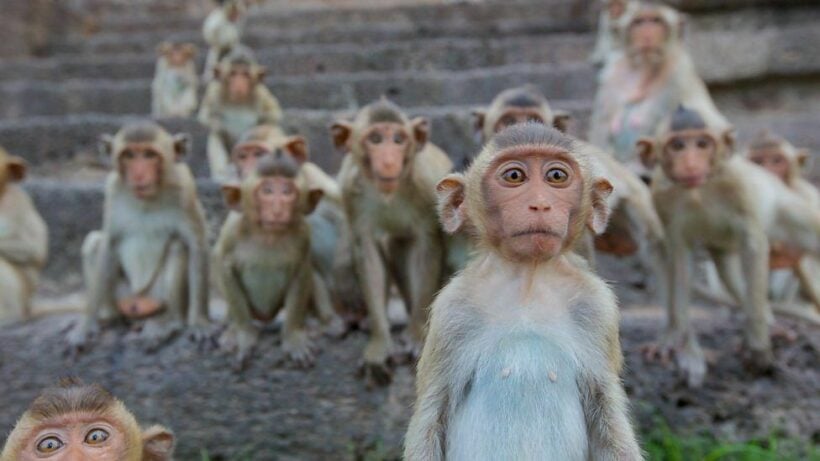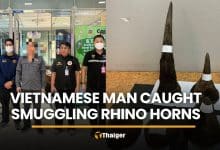Cambodian wildlife official charged with smuggling temple monkeys

A Cambodian wildlife official has been charged in the United States with smuggling endangered monkeys.
Eight people have now been charged with smuggling the endangered monkeys. The Guardian reports that the Cambodian official was arrested on his way to a conference on protecting endangered species.
The group arrested are connected to a Hong Kong-based company involved in breeding long-tailed macaques for research and supplying them to labs in Florida and Texas. They are accused of illegally purchasing wild macaques to supplement their breeding operation.
Long-tailed macaques, also known as crab-eating macaques, are protected and permits are required to import them into the US. In Thailand, macaques are commonly found in Buddhist temples, where they can be an annoyance to unwary visitors. They have been known to cause trouble for tourists by stealing their phones or invading their condos in search of food.
Florida attorney Juan Antonio Gonzalez said…
“The macaque is already recognised as an endangered species by the International Union for the Conservation of Nature. The practice of illegally taking them from their habitat to end up in a lab is something we need to stop. Greed should never come before responsible conservation.”
Masphal Kry of Cambodia’s Ministry of Agriculture, Forestry and Fisheries was arrested on Wednesday at John F Kennedy airport in New York. Kry was travelling to Panama to attend a conference on regulating trade in endangered species.
Omaliss Keo, director general of Cambodia’s Forestry Administration, is also charged, along with six employees of Vanny Resources Holdings, operating out of Hong Kong. Vanny is owned by corporations that are believed to have conspired with black market collectors and officials in Cambodia to acquire wild macaques and export them to the US, falsely labelled as captive-bred.

The monkeys were taken from protected areas in Cambodia to breeding facilities and given false export permits by wildlife officials. The officials were accused of receiving cash payments in exchange for 3,000 unofficial monkeys.
Edward Grace, assistant director of the US Fish and Wildlife Service Office of Law Enforcement said…
“Wild populations of long-tailed macaques, as well as the health and wellbeing of the American public, are put at risk when these animals are removed from their natural habitat and illegally sold in the United States and elsewhere.”
The long-tailed macaque is the most heavily traded primate on the CITES database, almost exclusively for laboratory research. More than 600,000 were declared born or bred in captivity from 2011 to 2020 and exported. Almost 165,000 live monkeys were exported in 2020 alone.
If convicted, Cambodian wildlife officials face up to 146 years in a US penitentiary.
Latest Thailand News
Follow The Thaiger on Google News:


























